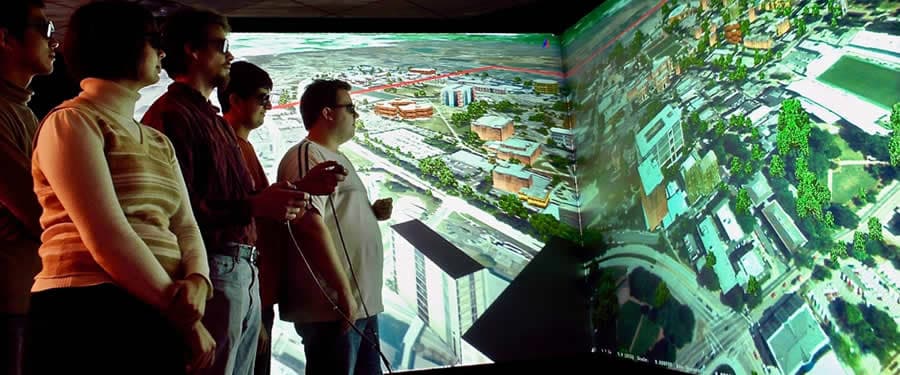
Improving the Persistence and Success of Students from Underrepresented Populations in Computer Science (I-PASS) is a collaboration among UNC Charlotte faculty that has received nearly $1 million in funding from the National Science Foundation (NSF).
 Mohsen Dorodchi, an associate professor in computer science, is the principal investigator on the project. Co-principal investigators are Roslyn Mickelson, Chancellor’s Professor of sociology, public policy and women’s and gender studies, and Bojan Cukic, professor and chair of the Computer Science Department.
Mohsen Dorodchi, an associate professor in computer science, is the principal investigator on the project. Co-principal investigators are Roslyn Mickelson, Chancellor’s Professor of sociology, public policy and women’s and gender studies, and Bojan Cukic, professor and chair of the Computer Science Department.
During an initial four-year run, I-PASS will fund 15 scholarships to students pursuing bachelor's degrees in computer science. I-PASS Fellows will be selected from a pool of eligible economically disadvantaged, female, underserved minority, rural and first-generation students. Eligible members of the 2019 freshman class of computer science majors will be able to apply for an I-PASS fellowship.
Additionally, the project will provide mentoring, tutoring and student-centered activities to ensure the program's students remain engaged and on track. Also, faculty will be better trained in issues of sexism, racism and micro-aggression, which often go unrecognized and can affect student success.
I-PASS project investigators aim to address issues of equity and access in the computer science discipline by:
- Increasing the retention and graduation of underserved students
- Narrowing the performance gaps and graduation rates between computer science majors and underserved students
- Broadening and enhancing the gender, ethnic, generational and social class backgrounds of computer science students
- Developing interventions that can be extended to other STEM disciplines
Dorodchi is most excited that the project goes beyond simply providing financial support.
"It involves improving the curricula and pedagogy in introductory CS (computer science) courses so that courses involve active, student-centered learning and teaching. The I-PASS Fellows will also receive tiered mentoring, tutoring, involvement in research and service learning," said Dorodchi. "These innovations will be done through collaboration within CCI (College of Computing and Informatics) as well as with other University entities such as the University Center for Academic Excellence (UCAE).”
He added, "The innovations’ purpose is to provide the necessary support for students to successfully finish and graduate with their computer science degree within four years. I-PASS Fellows will be prepared for the workforce and/or graduate school."
I-PASS scholars will receive the project's intervention for four years, starting the first semester of their first year in college. Two control groups will be selected to allow the research team to evaluate the success of the project using quantitative indicators of the program's outcomes (e.g., grades, retention and persistence to graduation). In addition to quantitative indicators, the researchers will administer surveys and in-depth interviews to assess the success of the interventions and examine how the intervention components help (or fail to) mitigate obstacles the scholars face in pursuit of their computer science degrees.